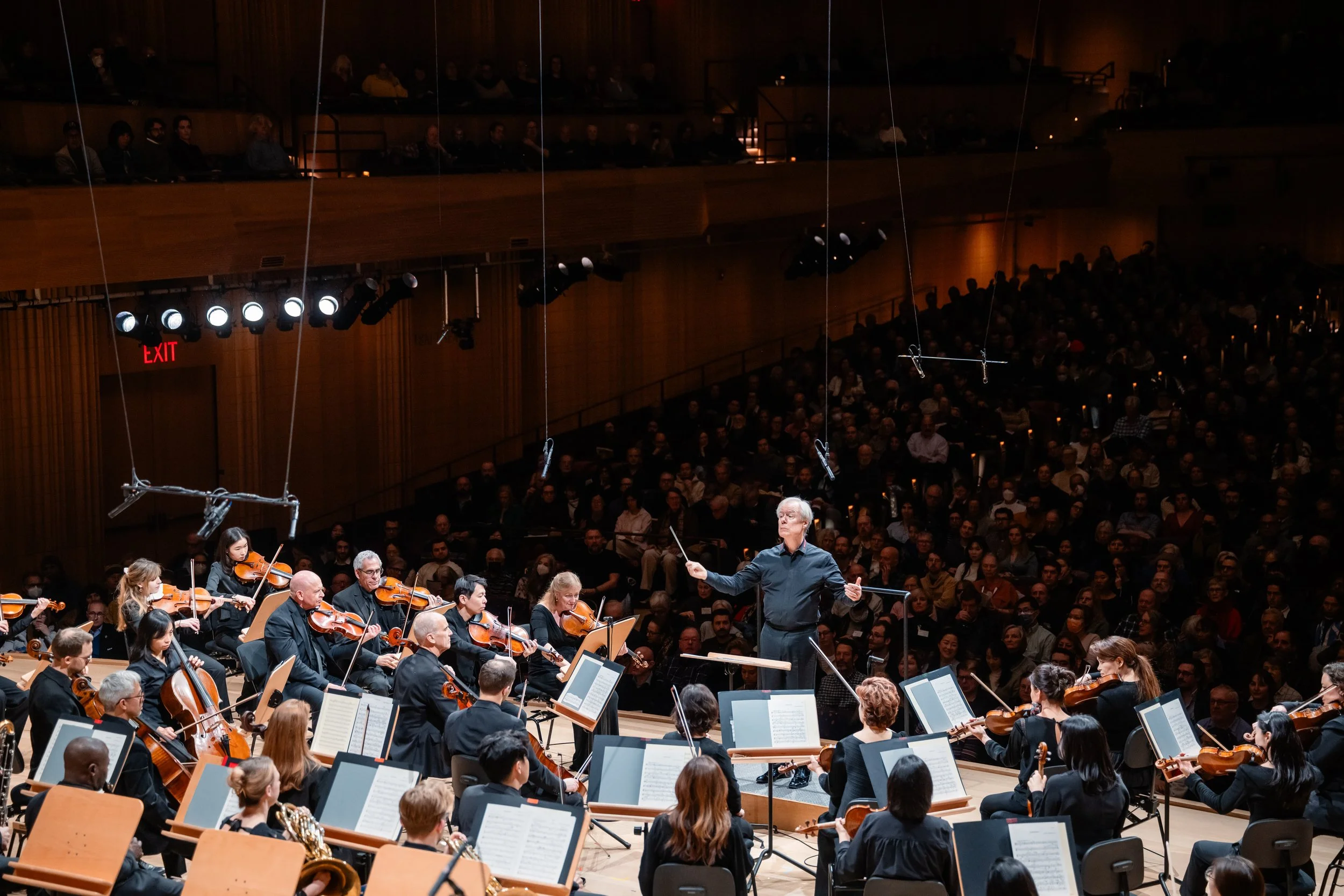REVIEW: Bruce Liu Savors Return to Carnegie Hall
Above photo by Jennifer Taylor
January 24, 2025
Bruce Liu’s recitals, such as his 2023 Carnegie Hall debut, balance beloved hits of the repertoire with less familiar rarities. Liu is a pianist who seeks to stand out from the crowd by being himself, channeling stylish musical elegance and sleek technical facility into heartfelt literature fueled by expressive lyricism.
Sergei Prokofiev’s Piano Sonata No. 7 in B-flat Major, Op. 83 — one of the twentieth-century’s most prevalent contributions to the canon, and the heftiest undertaking in Liu’s 2025 return to Stern Auditorium — isn’t often thought of as lyrically expressive. But Liu’s interpretation of Prokofiev’s steely war-time sonata ached with humanity, revealing the piece’s emotionally fraught core.
Photo by Jennifer Taylor
Liu must be in a “Russian phase.” He built to Prokofiev’s Seventh with Alexander Scriabin’s Fourth — whimsical and jazzy — and sandwiched that between halves of Tchaikovsky’s The Seasons, a suite of a dozen intimate character pieces inspired by the months of the year. The same composer’s “Dance of the Four Swans” from Swan Lake (arranged by Earl Wild) supplied a bit of sparkle and punctuation after the first six months of Seasons (between June and July, specifically).
It was an intriguing programming choice, given the reticent (and repetitive) nature of Tchaikovsky’s pieces, composed in 1876 on commission following his First Piano Concerto; the result was that each half of the program was shaped like a crescendo, or an ocean swell. The Seasons (each piece also bears a poetic title) offered a chance for Liu to explore Schumann-esque pianistic romanticism in music very few of his peers are performing.
The pianist’s tonal sensitivity and keen ear for line were the focal point in the first piece, January, which unfolded with the gentle warmth and flowing conversation implied in its title, “At the Fireside,” and March’s “Song of the Lark,” a long-unspooling, improvisational birdsong, had the deceptive insouciance of a scatting blues singer. April (“Snowdrop”), May (“White Nights”), and the most popular of the set, June’s “Barcarolle,” all showed off the pianist’s seductive legato and tasteful rubato. February (“Carnival”) and the Wild arrangement contrasted that with flying fingers and crisp filigree.
Scriabin’s pivotal Piano Sonata No. 4 in F-sharp Major, Op. 30, from 1903, sounds surprisingly contemporary — foreshadowing harmonies that would later emerge and take hold in places like Hollywood scores and New Wave jazz. The Russian composer, immersed in mysticism and synesthesia, accompanied the sonata with a symbolist poem:
In a light mist, transparent vapor
Lost afar and yet distinct
A star gleams softly.
How beautiful! The bluish mystery
Of her glow
Beckons me, cradles me.
O bring me to thee, far distant star!
Bathe me in trembling rays
Sweet light! …
The first movement, Andante, sweetly yearning, flows seamlessly into the second, Prestissimo volando, which envelops the listener in warm radiance; the poem concludes, “I swallow thee / Sea of light. / My self-of-light / I engulf thee!” Liu indulged playfully and flexibly in Scriabin’s erotic sensuousness. He sculpted Scriabin’s wash of ecstatic melodic impulses into a luscious abstract painting, and the Liszt-ian climax of the finale was a searing, blue blaze of F-sharp major.
Photo by Jennifer Taylor
Following intermission, Liu continued from midsummer, with Tchaikovsky’s playful July (“The Reaper’s Song”), and the delightful “Harvest Song” (August), and he was prayerfully invested in the lament of October’s melancholy “Autumn Song.”
Liu tore into the Prokofiev with a lion-like focus, slicing through its thorny exterior — occasionally at the expense of rhythmic definition — to savor the protein beneath. I missed some of the rattling bones and militaristic brass in the first movement, Allegro inquieto, but heard the second movement, Andante caloroso, anew. Liu handled the middle section, in which alternate realities seem to collide, with deft clarity.
The finale, Precipitato, like much of The Seasons, might have been more convincing in a smaller room. Here again, Liu shunned virtuosity for its own sake, and whittled Prokofiev’s driving toccata in 7/8 down to its emotional guts. The angles and edges softened, the too-easily-flowing tempo, and the Hall’s reverberance resulted in the detaché ending feeling slid into. But no question, Liu had hit a home-run, and the cheering rafters were rewarded with a Chopin Waltz, a fleeting, fantastic Fantasie-Impromptu, and a quirkily personal take on Scott Joplin’s “The Maple-Leaf Rag.”
***







